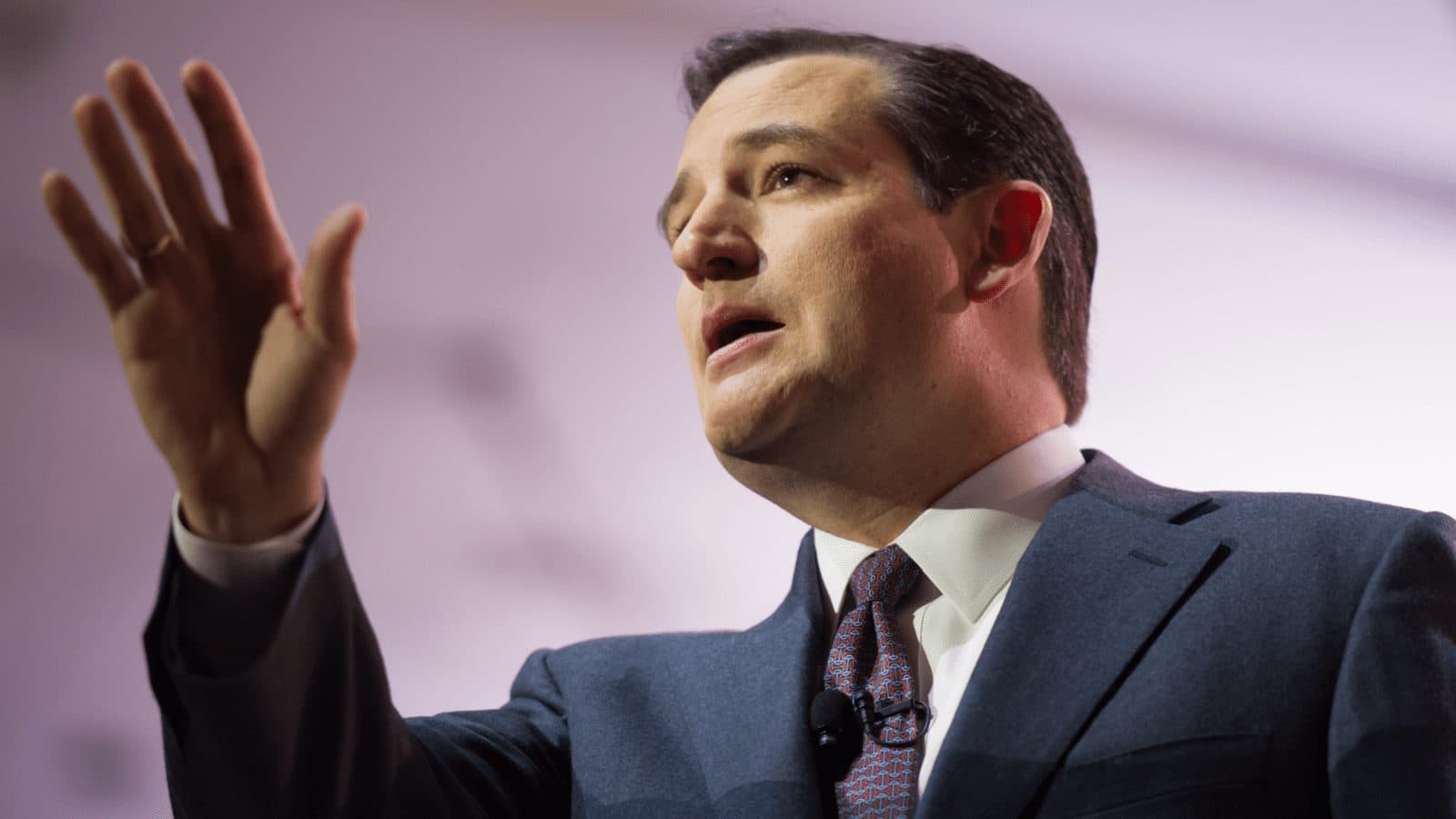Ted Cruz’s Senate Bill on CBDCs Replicates January House Proposal
The senator’s legislation calls to prohibit the Federal Reserve from issuing a government-backed currency to individuals

Texas Senator Ted Cruz | Source: Shutterstock
- A direct-to-consumer CBDC could be used as a “financial surveillance tool” by the federal government, according to Cruz
- Rep. Tom Emmer, R-Minn., introduced a House bill proposing the same objective in January
Sen. Ted Cruz has proposed a bill echoing one introduced in the House in January, in an attempt to maintain the dollar’s dominance without competing with the private sector.
The latest planned legislation, introduced by the Republican senator from Texas, would prohibit the Federal Reserve from issuing a central bank digital currency (CBDC) directly to individuals.
A direct-to-consumer CBDC could be used as a “financial surveillance tool” by the federal government, similar to what is happening in China, according to Cruz.
“The federal government has the ability to encourage and nurture innovation in the cryptocurrency space, or to completely devastate it,” Cruz said in a statement.
“This bill goes a long way in making sure big government doesn’t attempt to centralize and control cryptocurrency so that it can continue to thrive and prosper in the United States.”
CBDCs differ from decentralized currencies such as bitcoin, as they are issued and backed by a government and transact on a centralized permissioned blockchain.
President Joe Biden signed an executive order earlier this month that calls on a variety of government agencies to study the “responsible development” of digital assets. It also mentions “placing urgency” on the research and potential development of an American CBDC.
Industry watchers previously told Blockworks that though the order is an important step in the policymaking process, concrete legislation could take years.
Rep. Tom Emmer, R-Minn., introduced a House bill that would prevent the Fed from issuing a CBDC to individuals in January.
The Federal Reserve issued a report that month that expressed potential interest in a CBDC that is “identity-verified” but did not take any policy stance. The agency is soliciting public comments through May 20.
“I’m glad Senator Cruz has agreed to offer a Senate companion to my legislation limiting the Fed’s authorities,” Emmer said in a statement. “The Fed must only craft a CBDC framework that is open, permissionless and private — meaning any digital dollar must be accessible to all, transact on a blockchain that is transparent to all and maintain the privacy elements of cash.”
Get the news in your inbox. Explore Blockworks newsletters:
- The Breakdown: Decoding crypto and the markets. Daily.
- 0xResearch: Alpha in your inbox. Think like an analyst.






